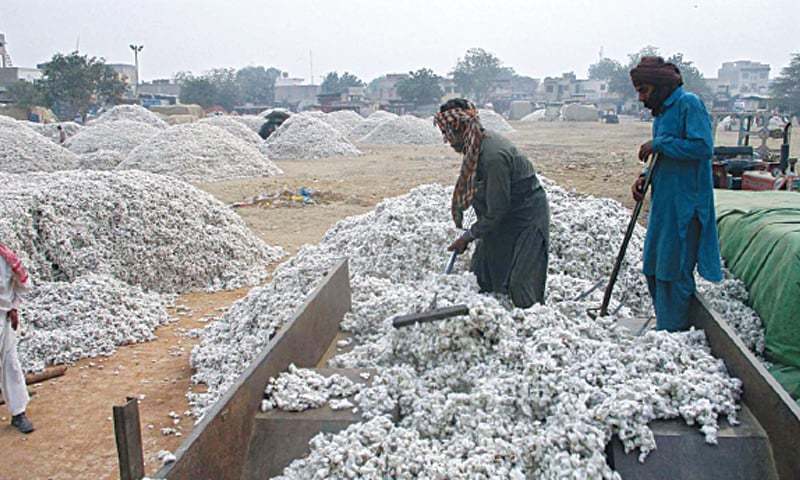ISLAMABAD: The government has fixed the intervention price of cotton at Rs5,000 per 40kg to increase its output which has been declining for the past few years.
Addressing a press conference on Wednesday, Minister for National Food Security and Research Syed Fakhr Imam expressed the hope that the news intervention price would encourage the growers to enhance the area under cotton crop and ensure better return of their crop besides protecting them from being exploited.
He said the federal cabinet in its last meeting approved the national food security and research ministry’s proposal of setting the intervention price of cotton at Rs5,000 per 40 kg. The government has decided that if prices fall below that level, the intervention policy will be activated.
The minister said the government was working on a cotton revival programme which would be introduced soon, and primary objective of the programme would be to provide quality input for cotton, especially cotton seed and pesticides, in addition to modernisation of ginning technology.
Production target for 2021-22 has been set at 10.51m bales
Under the programme, he said, insect sterile technique and integrated pest management would be applied to control insects like whitefly and pink bollworm management besides modernisation of ginning technology.
Mr Imam said that the procurement would be set as 90 percent of the import parity price, and the ministry would constitute a ‘cotton price review committee’ which would monitor the cotton price in the country. This committee will direct the Trading Corporation of Pakistan (TCP) to start procurement if prices fall.
He said the TCP would initially procure 200,000 bales of cotton and ensue that farmers get directly benefited from the procurement. This would help stabilise cotton prices in the country, he asserted.
At a recent meeting of the Economic Coordination Committee of the cabinet, the ministry of national food security reported that cotton area and yield had increased during the TCP intervention period from 1998 to 2010 and decreased from 2011 to 2020 when there was no intervention .
Research experts suggest that cotton zoning is indispensable to revive the crop. Such zoning coupled with fixation of minimum indicative or intervention price, timely issuance of subsidies and improved extension services for awareness of farmers are essential for revival of cotton production.
The target of cotton production for 2021-22 has been set at 10.51 million bales from a combined area of 2.32m hectares in Punjab, Sindh, Khyber Pakhtunkhwa and Balochistan.
According to figures released by the ministry of national food security and research, 80.88pc of sowing has been completed.
During 2020-21, the crop was cultivated on 2,079 thousand hectares, reflecting a contraction of 17.4pc as compared to last year’s sown area of 2,517 thousand hectares. Production declined by 22.8pc to 7.064m bales against 9.148m bales of last year. Declining cultivated area has reduced production as the crop has lost its competitiveness relative to other major crops, in particular sugarcane.
The government is also exploring avenues for growing cotton in Balochistan and Khyber Pakhtunkhwa where pest pressure is low and cotton yields are reportedly higher than traditional areas of Punjab and Sindh.
Published in Dawn, August 5th, 2021














































Dear visitor, the comments section is undergoing an overhaul and will return soon.